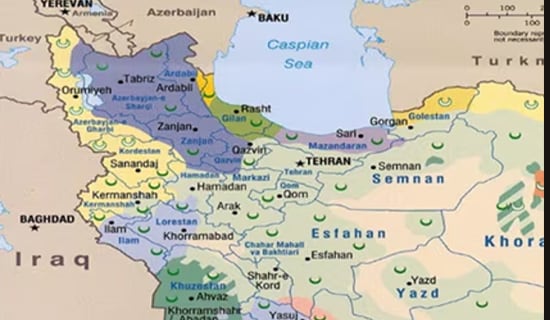In a July 29, 2008 article in the Lahore-based newspaper Daily Times, Pakistani lawyer Taimur Malik called for reform in Pakistan's blasphemy law. This law, enshrined in Section 295-C of the Pakistan Penal Code, stipulates capital punishment for anyone found guilty of blaspheming the Prophet Muhammad. Taimur Malik, a practising lawyer, is executive director of the Research Society of International Law.
Pakistan's blasphemy law has made headlines for its social and political implications, especially its widespread misuse against members of minority communities. In numerous cases, Pakistani Christians have been implicated in trumped-up blasphemy charges by those desirous of grabbing their land. Sunni extremists have also brought many cases against Ahmadi Muslims, accusing them of blasphemy.
Politically, the level of mass sentiment against blasphemy was evident when, for several months in early 2008, religious groups across Pakistan led street protests against the Danish newspaper's reprinting of cartoons depicting the Prophet Muhammad, demanding an international law against blasphemy. Popular sentiment against blasphemy is strongly rooted in Pakistani society, making it difficult for political leaders to introduce legal changes.
In his article, titled "The Blasphemy Challenge," Taimur Malik pointed out how the law has constrained the Pakistani judiciary, making it difficult for it to deliver impartial verdicts, as trial court judges fear reprisals from the Islamists. He called for meaningful reform at the highest levels of society and polity in Pakistan.
Following are excerpts from the article, as originally published in English.[1]
A Fair Hearing in Blasphemy Cases is Nearly Impossible due to Climate of Intolerance
"A division bench of the Lahore High Court, headed by Justice M Bilal Khan gave a landmark judgement in a recent case titled Maulvi Tahir Asim versus State. In a unique ruling, the judges acquitted the appellant accused of blasphemy after he recited the Kalma in open court and denied the allegations levelled against him.
"The complainant in this case had accused that Maulvi Tahir Asim, while delivering his speech to the Friday congregation, had passed remarks which amounted to blasphemy. Maulvi Tahir Asim was thus booked under section 295-C of the Pakistan Penal Code (PPC). Despite pleading innocence, he was convicted and sentenced to death by the trial court.
"In order to support his submission of innocence, he had also tendered an affidavit before the trial court wherein he categorically denied having ever passed any blasphemous remarks. Maulvi Tahir further pleaded that he was being implicated by the complainants for sectarian reasons, but the same went unheard at the trial stage.
"The infamous Section 295-C reads as follows: 'Whoever by words, either spoken or written or by visible representation, or by any imputation, innuendo, or insinuation, directly or indirectly, defiles the sacred name of the Holy Prophet Mohammed (PBUH) shall be punished with death, or imprisonment for life, and shall also be liable to fine.' [italics in original]
"Moreover, the Federal Shariat Court has strongly emphasised the grievous nature of the crime by prescribing 'death and nothing else' as the only suitable punishment.
"The law appreciates the need for an environment conducive for a 'fair and impartial trial.' It serves this end, in the interest of justice, by providing the judges with such protections that are meant to ensure a 'fear-free' judiciary. Unfortunately, such measures remain insufficient and have failed to achieve the desired purpose. In the climate of intolerance that prevails, and in view of threats and intimidation and the pressures brought on the judiciary, it has become nearly impossible to obtain a fair hearing in Pakistan for those charged under the blasphemy laws. In these circumstances, the lower judiciary has often been constrained to accuse and convict persons without proper study of the evidence placed before it.
"There may be several sources of this failure. One that demands attention is the regressive social setup in Pakistan, which breeds violence as a viable solution.
"Such pressures compel the lower courts to pass on the responsibility of a properly informed and investigated adjudication onto the higher court. Not only is this trend indicative of poor investigative judicial procedure but the wrongful convictions and imprisonments also end up reflecting negatively on Pakistan's human rights record.
"The Pakistani Catholic bishops' Justice and Peace Commission complained in July 2005 that since 1988, some 650 people had been falsely accused and arrested under the blasphemy law. Moreover, over the same period, some 20 people accused of the same offence had been killed.
"The decision of the lower court in this case, along with the alleged 650 contentious blasphemy trials, is indicative of judicial submission to this fear. One must begin by changing this mindset and establishing the supremacy of law.
Lower Courts Are Initiating Trial with the Presumption that the Accused is Guilty
"Given the controversial nature of blasphemy laws, much responsibility lies on the courts to scrutinise the particulars of each individual case. A cardinal principle of criminal procedure requires the court to initiate criminal proceedings against the accused with a presumption of innocence and meet a standard of proof of 'guilt beyond reasonable doubt' to obtain a conviction.
"Deviating from this core principle of criminal law gives rise to an unsettling outcome as evidenced by the decision of the lower court in this particular case. Approaches like initiating trial with the presumption that the accused is guilty and setting the standard of proof at a bare minimum, deny justice to society. Such practices must be curbed, most importantly, at the lowest level to ensure confidence in judicial decisions and faith in the system.
"In this case, the facts clearly suggest an accusation driven by sectarian differences and a motive to victimise a particular group. The courts need to account for the shameful reality that blasphemy laws are repeatedly abused to the detriment of marginalised groups. Enmities and feuds are repeatedly settled by invoking the law as an excuse for harassment and violence, or as a retaliatory tool leading to societal persecution. This exploits and aggravates a social perception which is deeply sensitive to matters pertaining to the sanctity of the Holy Prophet (PBUH) and highly antagonistic to any alleged violation of the same.
"Any meaningful reform of both society's reactionary vehemence to those accused of blasphemy and the prevalent use of the law as a political tool must originate at the highest level of influence and impact. In this respect, Justice Bilal Khan's ruling in this recent case is a welcome decision which will hopefully go a long way towards rectifying societal attitudes on blasphemy and discourage its abuse as a tool of oppression.
"The fact that this latest decision will act as a governing precedent for coming cases should have a telling impact on the lower courts which are in dire need of procedural reform. The current judgement allows for a denial of the allegation on oath and upon recitation of the Kalma, to constitute sufficient grounds for establishing innocence. It clearly shifts the burden of proof squarely upon the prosecution and requires a stringent standard of evidence to be met.
"This decision as an operating precedent makes it difficult for a conviction to be obtained in the lower courts without a strict evidentiary standard and the lower courts also need to examine possibilities of inimical relations motivating the allegations. Most importantly, it emphasises the significance of a denial by the accused which suggests a much more conservative jurisprudence in the reading of the blasphemy laws, a trend which should minimise its abuse at the hands of opportunist miscreants."
[1] Daily Times (Pakistan), July 29, 2008.








